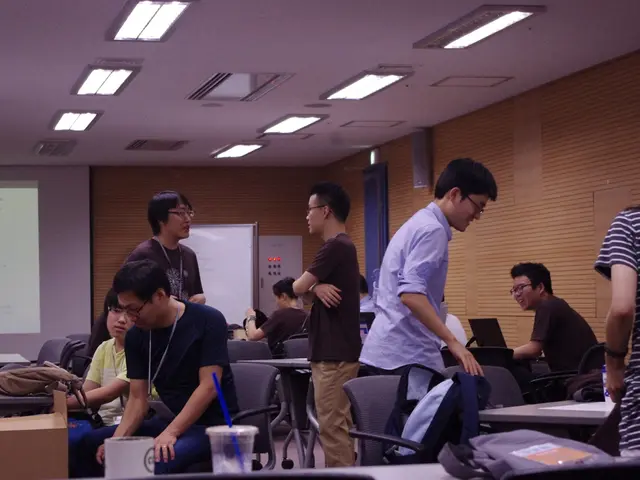Trump's New H-1B Visa Rule: $100,000 Fee Hits Indian Tech Hard
US President Donald Trump's recent Presidential Proclamation has significantly altered the H-1B visa program, with Indian nationals bearing the brunt of the changes. The proclamation, deemed a 'national security threat' by critics, has introduced a $100,000 fee for applications, marking a shift in US immigration policy towards nativist politics.
Sriram Krishnan, a prominent figure in AI and policy, has been vocal about the proclamation's implications. As a Senior White House Policy Advisor for Artificial Intelligence, Krishnan has advocated for immigration reform and ethical AI development. He previously worked at Andreessen Horowitz and began his White House role in January 2025.
The proclamation's impact extends beyond the US. Indian nationals, who make up 71% of H-1B recipients, are significantly affected. This could reshape the global distribution of tech talent, with potential long-term implications for the industry's structure. Indian technology companies may struggle with the new fee, potentially leading to growth in global capability centers of US companies.
The Indian government has responded with concern, warning of humanitarian consequences for families. The trajectory of US-India relations and the broader international context intersect with the proclamation's fallout. Historically, the H-1B visa program has been seen as pro-business and beneficial to the US economy by Republicans.
The $100,000 fee for H-1B visa applications, coupled with accusations of visa fraud and illicit activities, has raised concerns about the future of the program and its impact on US-India relations. The global tech industry braces for potential reshuffling, with Indian technology companies and their employees among those most affected.
Read also:
- Election Protection Consultants: Crucial Role in 2024 and Beyond
- Homeownership Dreams Dashed: High Prices and Rates Keep Young Americans Out
- Government Updates: Key Points from Today's Press Information Bureau (12-09-2025)
- Unfair Expenditure Distribution, Secret Tourists, Looming Rabies Threats: Latest News Roundup





